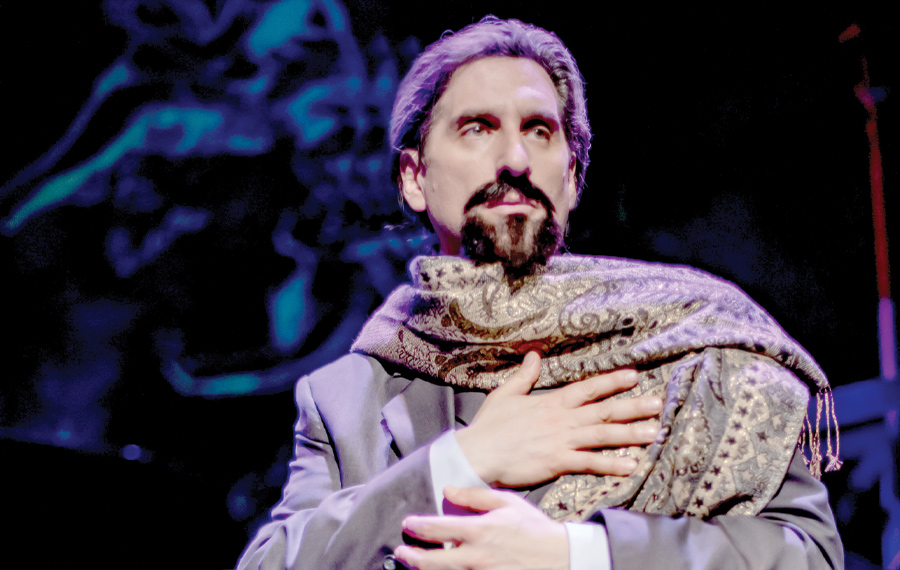 Hershey Felder in “A Paris Love Story” Photo by Christopher Ash
Hershey Felder in “A Paris Love Story” Photo by Christopher Ash
Hershey Felder, Canada’s gift to the world’s stage as actor, musician and playwright, returns to Los Angeles this month with his one-man show, “A Paris Love Story.” The piece celebrates the life, music and numerous romantic liaisons of French composer Claude Debussy.
Growing up in Montreal’s tightly knit Jewish community, Felder told the Journal, “Debussy was my first childhood love, but I never thought I would tell his story.”
Debussy, who lived from 1862 to 1918, “painted his music in colors … somehow it showed me how to get through hard times and deal with the difficulties of the world,” Felder said.
That is high praise from a man who, beginning with his portrayal of George Gershwin at the old Tiffany Theatre on the Sunset Strip some 21 years ago, has since re-created the likes of Ludwig van Beethoven, Franz Liszt, Frederic Chopin and Pyotr Tchaikovsky, as well as Irving Berlin, Leonard Bernstein and Abraham Lincoln.
Felder, 50, fell in love with Debussy’s music as a young man, after listening to the composer’s sweeping “La Mer,” the evocative “Prelude a l’apres-midi d’un faune” and the mystical “Clair de Lune.”
Debussy needed all the consolation he could draw from music because “his parents didn’t think much of him and hardly paid him any attention. They thought of their son as a loser,” Felder said.
For the “crime” of marrying a Jewish woman, the Nazi regime banned Debussy’s compositions from being performed.
Even in an era when extramarital relations were commonplace, Debussy was a womanizer of considerable proportions. “Womanizing was a psychological aspect of the man and also a sign of the times,” Felder said. “Debussy was a complicated person.”
The composer’s most lasting liaison was with Emma Bardac, born Emma Moyse. She was a talented singer and initially Debussy’s mistress before becoming his wife and the mother of his adored daughter.
For the “crime” of marrying a Jewish woman, the Nazi regime banned Debussy’s compositions from being performed. Although France was notorious for its anti-Semitism during Debussy’s lifetime (during which the notorious Dreyfus affair occurred), the composer remained unaffected by the oldest hatred, Felder said. “His God was embodied in his art. What he hated was the dilettante. He readily took other composers to task, and he was thoroughly anti-establishment.”
Composer David Cox noted in 1974 that Debussy “created a new, instinctive, dreamlike world of music, lyrical and pantheistic, contemplative and objective … a kind of art, in fact, which seemed to reach out into all aspects of experience.”
After Felder finished his run of “Beethoven” in Los Angeles last year, he told the Journal it was his last one-man show on famous musicians, but he obviously relented.
After “A Paris Love Letter,” he again announced his retirement from his unique art form. However, playing off the overworked cliché “Back by popular demand,” Felder noted that “the theaters come after me. … their audiences were panicking.”
And so, Felder will celebrate Russian composer Sergei Rachmaninoff next year as his ninth — and supposedly final — composer, debuting at the Laguna Playhouse.
“Hershey Felder: A Paris Love Story” opens May 24 and runs through June 9 at the Bram Goldsmith Theater of the Wallis Annenberg Center for the Performing Arts in Beverly Hills. For tickets visit theWallis.org/Debussy or call (310) 746-4000.























 More news and opinions than at a Shabbat dinner, right in your inbox.
More news and opinions than at a Shabbat dinner, right in your inbox.